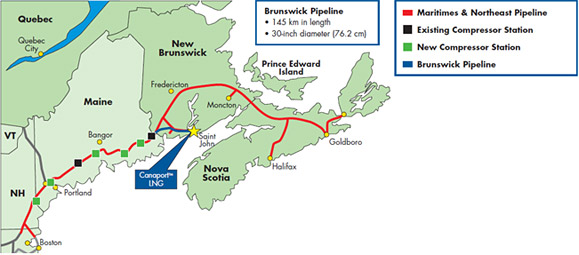In our most recent class with Professor James Tansey, we discussed sustainability as an outcome. It is important that businesses address their “triple bottom-line”, which entails the economic, social, and environmental aspects of a companies actions that determines if they are considered a sustainable corporation. Focusing on environmental and social sustainability, I find interest in examining how companies moving into First Nations communities develop relationships with, and learn sustainable practices from the local Aboriginal people.
An example of these forms of sustainability being successfully implemented was the agreement made between the Maritimes & Northeast Pipeline and the Assembly of Nova Scotia Mi’kmaq Chiefs. This involved both groups agreeing to work towards common initiatives, such as placing concern on the impact the pipeline could have to certain areas, and having the Mi’kmaq people give cultural-awareness workshops to environmental inspectors. These workshops would be significant to inspectors as they looked towards implementing the pipeline in an environmentally sustainable way, while similarly upholding social sustainability by reassuring the Chiefs and community that their culture was being considered. Moreover, the pipeline set-up scholarships for native Mi’kmaq students with the intention of “build[ing] community capacity“.

